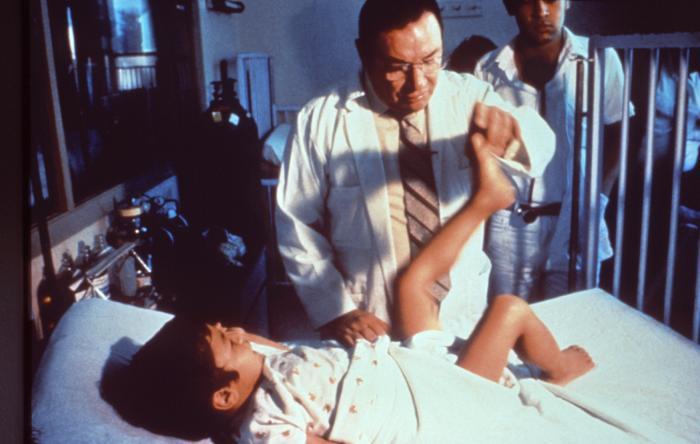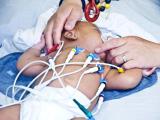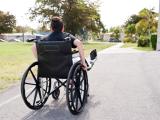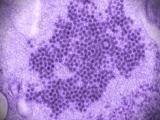Only one of more than 100 US children who were struck by an unexplained polio-like illness causing limb weakness in recent months has fully recovered, federal health officials revealed today, as they reported one additional case.
The count of acute flaccid myelitis (AFM) cases in children meeting the outbreak case definition increased to 103, the Centers for Disease Control and Prevention (CDC) reported in its first update on the topic since Dec 18. Cases have occurred in 34 states.
In addition, the CDC today raised its tally of cases in a national outbreak of enterovirus D68 (EV-D68) respiratory infections by 1, to 1,153 in 49 states and Washington, DC. Also, the agency reported 1 more death related to EV-D68, for a total of 13. It has not reported any conclusions about the role of the virus in the deaths.
Some of the AFM patients were infected with EV-D68, but a link between the virus and AFM has not been conclusively established.
Two-thirds had some improvement
In today's AFM update, the CDC said about two thirds of the children who were monitored after their illness have reported some improvement, but only one child has fully recovered. About a third showed no improvement.
The patients have a median age of about 7 years, the CDC said. Almost all of them were hospitalized, most had a fever and/or respiratory illness before their neurologic symptoms, and some were put on ventilators.
In an article released today in Morbidity and Mortality Weekly Report (MMWR), the CDC provided more details on 88 AFM cases that were reported as of Nov 13.
It says limb weakness was asymmetrical in most of the patients, and 30 of 88 (34%) had cranial nerve dysfunction. Six patients had altered mental status, and 3 had seizures. Most of them were previously healthy. All but 1 were hospitalized, and 17 needed ventilator support.
Of 77 patients whose current clinical status was known, 49 reported some improvement in their condition, and the other 28 did not.
No virus found in CSF
Cerebrospinal fluid (CSF) testing was done in 71 patients, and no enteroviruses or other pathogens were found, the article says. Upper respiratory tract samples from 41 patients were tested; 8 (20%) of these were positive for EV-D68 and 9 (22%) contained other enteroviruses or rhinoviruses.
Among 19 patients whose respiratory samples were obtained less than 14 days after they got sick, 7 (37%) tested positive for EV-D68 and 3 (16%) for rhinoviruses.
The report says the causes of the illness are still under investigation, and a causal role for EV-D68 "has not yet been substantiated."
EV-D68, which was rare until recently, was the most common enterovirus identified in the United States in 2014, according to the CDC. It typically triggers cold-like symptoms but can cause a severe respiratory illness, almost exclusively in children, many of whom have asthma.
See also:
CDC update on AFM investigation
Jan 9 MMWR report
Related Dec 19 CIDRAP News item






















